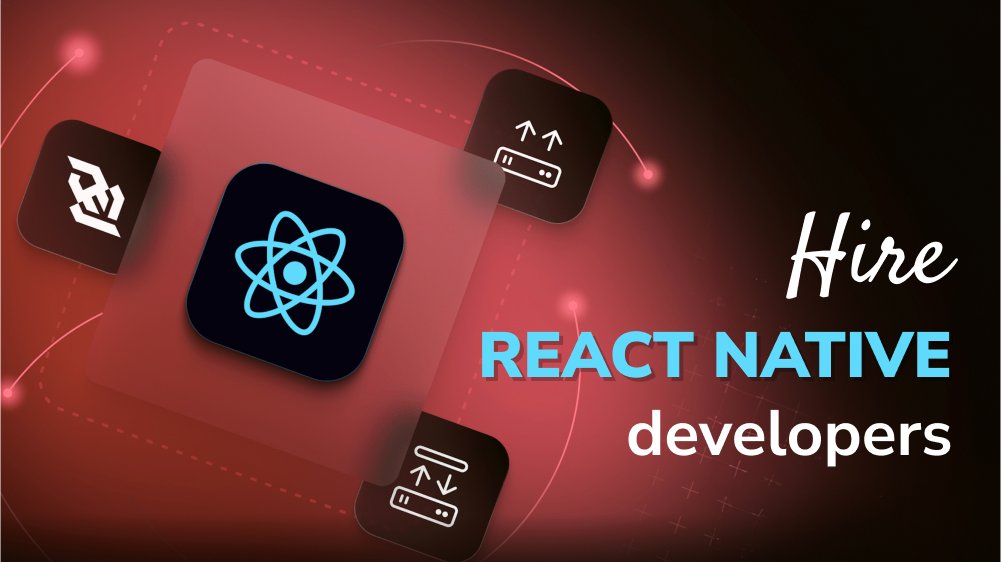Hire .NET Developers in Vietnam: Tips to Swiftly Close Your Skill Gap

Content Map
More chaptersHave you ever delved into the statistics that highlight the mismatch between the supply and demand of skilled developers and other tech professionals? Frankly, the notion of developer shortage is not merely a myth; it is a factual phenomenon. As digital transformation and technological advancement accelerate, this shortage is intensifying at an unprecedented rate.
The Dice Tech Job Report has revealed that there has been a surge of tech job vacancies in the U.S. in 2022, which is 25% higher than 2019’s peak. The number underscores the fact that the tech industry is crying out for IT professionals. Thus, the imbalance between the high call and the low supply of IT talent has made it harder and more costly to find and acquire developers of any type and technologies, including .NET engineers.
But don’t fret. There is always a way out - outsourcing. Definitely. More and more global companies discover that Vietnam is a booming IT hub with abundant tech talent - an ideal destination for tapping into the sea of potential. This country makes a sustainable source of high-quality human resources, especially when it comes to .NET programmers.
Indeed, hiring developers from Vietnam is a strategic decision that yields many benefits. But before that, you will need to know a few tips and tricks that ease your hiring process in this region and ensure success in your recruitment efforts.
What to Keep in Mind When Hiring a .NET Developer

So, if you are a project manager looking to hire .NET programmers, you may have already realized that it is never an easy task, right? Especially when you have little to no understanding of whom you are going to hire or work with.
Plus, the pressure to close your skill gap quickly only adds more stress and complexity to the hiring procedure, making you rush into hiring decisions that may not be the optimal ones. To avoid the very first risks of getting the wrong hires, you’d better make sure you first familiarize yourself with Microsoft’s .NET framework and then learn proper ways to approach and assess a .NET programmer from technical and cultural perspectives.
Job Description

.NET platform is composed of multiple programming languages (C#, Visual Basic, F#, ASP.NET, J#, etc.), tools, and libraries for building a variety of software solutions; it is widely trusted and used for web development and mobile app development.
Basically, a Dot Net programmer or developer is a professional who is responsible for designing, coding, testing, and deploying Microsoft-based software solutions (Could be web apps and mobile apps) custom-made to the business needs or an organization. They must demonstrate their expertise and experience in using the .NET framework’s tools and primary components, such as ASP.NET MVC, Web API, Microsoft SQL Server, and more.
That’s how you, as a recruiter, must picture a .NET developer before delving into further details of the skills, qualifications, and experience needed for the position. However, bear in mind that a Dot Net programmer’s roles and responsibilities may vary slightly depending on the company’s size, team structure, project requirements, and many other factors.
Responsibilities
As a member of the whole .NET development team, these developers are tasked to handle and fulfill various development-related functions to bring .NET applications to life:
- Participate in discussions with project managers and other stakeholders to determine the project scope, requirements, schedules, and budgets.
- Collaborate with cross-functional teams (e.g., designers, project managers, DevOps engineers) in the whole software development cycle, from initial conception to final deployment and maintenance.
- Design system architecture diagrams and write code according to specifications.
- Integrate data storage solutions (database technologies, file systems) with software applications and ensure seamless data flow.
- Implement quality assurance procedures (automated testing, peer code reviews) to stabilize and optimize the performance of .NET solutions.
- Etc.
.NET Developer Skills & Qualifications
As the field of .NET technologies continues to advance, the expertise and credentials required for a proficient .NET programmer must also progress. The specific demands of a .NET project will influence how you characterize your perfect candidates and shape their necessary skill sets.
For example, project scope and complexity. Specifically, building large-scale enterprise applications usually calls for a bigger development team and a more comprehensive coverage of the .NET technical stack. The function a software developer serves in the entire development process brings about variations in the competencies they need to offer. For instance, ASP Dot Net developers must be proficient with front-end functionalities, such as designing the presentation layer and developing client-side scripts. In contrast, back-end developers must have a strong understanding of server-side languages and databases. Meanwhile, a full-stack developer who carries out both front-end and back-end duties must have a diverse skillset - from UI/UX design, web development, and mobile application development to database management and software testing.
The level of mastery you expect from your developers in .NET tools and technologies is contingent on your specific requirements and expectations. However, irrespective of your unique needs, there exists a fundamental set of skills and qualifications that any proficient .NET professional should invariably possess:
- Proficiency in at least one .NET coding language, preferably C#.
- In-depth understanding of object-oriented programming concepts (OOP) and SOLID principles.
- Fluency in web technologies such as HTML, CSS, and JavaScript.
- Familiarity with database management systems like Microsoft SQL Server, MongoDB, or MySQL.
- Knowledge of various design patterns and software architectures (MVC, MVVM) to ensure scalability and maintainability of code base.
- Experience with Agile methodologies and version control tools (Git, TFS) for collaborative development.
- Communication and soft skills to effectively collaborate with cross-functional teams and convey technical concepts
- Ability to use various debugging tools (Visual Studio, ReSharper) to fix programming errors and enhance code quality.
- Capability in .NET Core development, cloud engineering, and developing cross-platform applications are a plus.
Cultural Considerations
Apart from technical expertise, skills, or experience levels, cultural fit is also the decisive criterion to evaluate whether a candidate can thrive within your team or organizational environment. Cultural fit refers to the shared values, beliefs, attitudes, and behaviors that align with a company’s culture and work environment. Some examples of cultural values that you may want to bear in mind when enlisting tech talent:
- Dedication - Developers who are committed to continuous self-improvement and lifelong learning.
- Collaboration - Team players who are willing to share knowledge, assist others, and seek aid when needed.
- Adaptability - Candidates who can flexibly adjust to new project requirements and technologies.
- Attention to detail - Developers who pay close attention to code quality, security measures, and design aesthetics.
- Problem-solving mindset - People who have a strong desire to solve complex problems creatively with technology.
Hire Dot Net Developers from Vietnam: Insiders’ Tips for Success

Outsourcing is a convenient and cost-effective way to recruit high-quality developers, isn’t it? Just sit back and leave the jobs to a capable hand, and you get everything done with less money and time. It is true about handing over the hardest parts of the staffing process to an external party, but hiring offshore developers is still a big step to take with caution and preparation. Check these tips out if you would like to make your hiring experience in Vietnam a breeze:
Get to Know the Vietnamese Tech Scene
Fueled by digitalization efforts and the rise of tech-enabled startups, Vietnam has witnessed big strides in the IT sector. With the booming of various tech industries, namely artificial intelligence, cloud computing, fintech, e-commerce, software outsourcing, and tech education, Vietnam is the latest “wonderland” for IT businesses and resources of the new era.
Owning many advantageous factors, such as a low cost of living and doing business, as well as a youthful population, Vietnam has a lot to offer tech companies, typically its pool of young and dynamic tech talent, Dot Net developers, in particular.
It’s often said, “When in Rome, do as the Romans do.” From geographical and historical viewpoints to cultural nuances, Vietnam possesses a rich tapestry of distinct features. These aspects have not only shaped its identity but also profoundly influenced the regional IT industry. The interplay of these factors has resulted in a dynamic and diverse tech landscape, reflecting the country’s multifaceted nature. Therefore, business owners and investors must be mindful of conducting market research and understanding business norms as well as the culture of Vietnam before they think of venturing into the Vietnamese tech landscape for either recruitment endeavors or business.
Also, prepare yourself for the fact that the hiring process of dedicated Dot Net developers in Vietnam will be completely different, and you have to become familiar with remote working as well as learn how to manage a virtual offshore team. Above all, getting to know the dynamics of Vietnam’s tech landscape and business environment is the foundation step needed for not only talent acquisition but also management and operations.
Do Not Rely Solely on the Cost to Hire .NET Developers

How much does it cost to acquire a decent developer whose expertise is in .NET frameworks? It depends on a variety of factors. Outstaffing to Vietnam is a solution for most tech businesses today to fulfill the vacancies whilst keeping the cost manageable.
It is no secret that a majority of companies and organizations within the tech industry outsource or hire overseas to minimize investment and maximize profit margin. Indeed, this is thanks to the cost variance in service charges and developer salaries between countries. Vietnamese vendors and engineers charge less for the same quality of service and even offer better output than their counterparts in somewhere else - Western areas, to name a few.
There is no disputing that the salary range of Vietnamese developers presents an attractive proposition for employers, particularly those grappling with a scarcity of IT talent and intense competition to secure qualified candidates. According to the statistics collected from Glassdoor’s users, the total pay range of developers in Vietnam spans from ₫34 million to ₫86 million per month. These figures are more competitive than many Western tech hubs and even with the Asian region.
Regrettably, many contracting companies or outsourcers fall into the trap of prioritizing monetary savings over hiring quality and competencies. They are lured by the immediate financial benefits without recognizing the detrimental impact on their project operation and outcomes later on. This approach of outsourcing undoubtedly results in more losses than gains, which will soon become evident over time. So, remember this very rule of thumb - Never make cost factors the sole determinant of your recruitment process. Rather, take into consideration other factors such as the vendor’s reputation and track record, customer feedback, project management practices, communication level, and individual roles’ responsibilities as well.
Do Not Underestimate Cultural Fit

Once again, cultural fit and cultural fit. Although cultural alignment is not a new phenomenon, it remains one of the most underrated aspects in the recruitment field, especially when it boils down to offshore hiring or outsourcing a dedicated team. This intangible factor has an enormous influence on how well employees succeed and contribute to the collective performance of their teams and organizations. Therefore, when hiring developers from Vietnam or any other location, culture should be viewed as a vital element that can make the difference between your project’s success or failure.
There is no way you can 100% eliminate the cultural gap altogether. Even if you can, that is not a sustainable choice. Chances are you will be constantly working with different groups of people from other countries and cultures throughout your professional journey, so learning how to manage cultural diversity right from the beginning can reduce the chances of misunderstandings later on.
Though Vietnamese culture contains some differences in aspects such as language, behavior, and communication style compared to Western society, its tech community is an exception. The proof of this lies in the way Vietnamese IT engineers work together with other counterparts from different cultures and countries, such as Singapore, Japan, or Europe when conducting projects; their proficiency and adaptability are very high for those who have had experience working long-term projects with remote developers from Vietnam know that they can be great team players.
Well-managed team diversity can enhance creativity and innovation in problem-solving as well as foster a better work culture, which leads to higher job satisfaction and retention rates. Therefore, when considering outsourcing Dot Net developers from Vietnam or somewhere, remember to prioritize finding a good cultural fit within the team for long-term success. As a service user, you can underscore this as an expectation for your outsourcing vendor and, from then on, make it a priority in their hiring process. This will ultimately result in a more harmonious and productive working environment.
Find a Software Development Company
Last but never least, not all recruitment agencies offer rock-bottom rates, render quality service, or have a good track record. Thus, the importance of selecting the right IT outsourcing partner cannot be overstated - not to discover the best of the best but rather the one that best aligns with your specific request. For further guidance upon vendor assessment and selection, give this instruction a look and filter out what are applicable to your factual situation.
In addition to the aforementioned tips, entrepreneurs should be aware of prevalent pitfalls frequently encountered when initiating software development outsourcing or staffing services to Vietnam. These errors are particularly common for those navigating this process for the first time.
Go to Orient Software for .NET Development Services

Would you like to meet up with the expert Dot Net developers and collaborate with a top-tier service provider in the IT industry who understands the Vietnamese market and culture? Look no further than Orient Software.
It has been almost two decades in the IT industry; Orient Software stays ahead of the competition. While we have an established and mature presence as a service provider, we maintain an open and adaptable mindset akin to that of newcomers in the rapidly evolving IT landscape. Our extensive experience is complemented by our continuous pursuit of innovation and receptiveness to emerging trends, making certain that we stay at the forefront of technological advancement. Our track record speaks for itself, as we have delivered numerous successful projects for clients around the globe. Contact us today to learn more about our services as well as how we can help you achieve your business goals with the best .NET development services from Vietnam.







